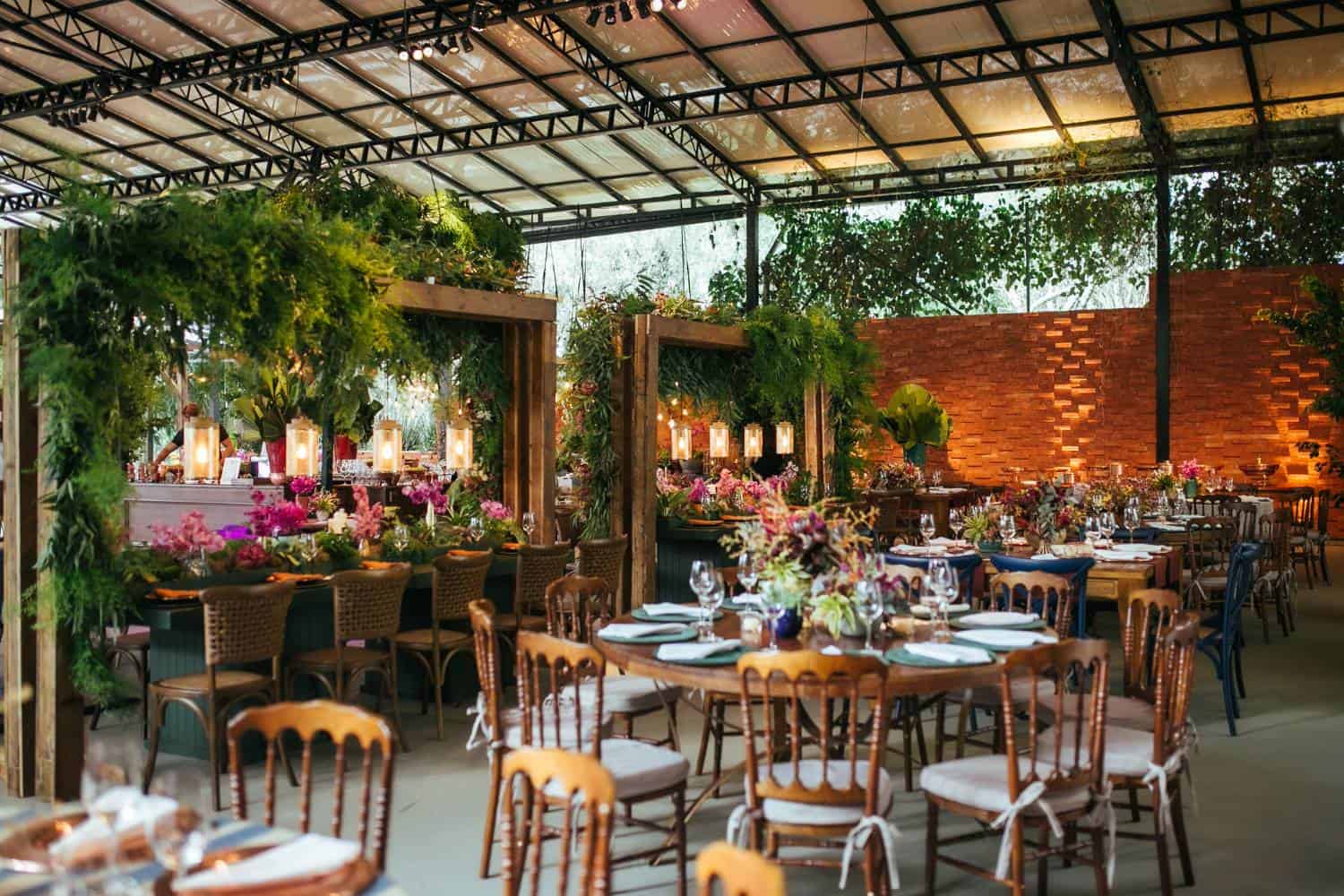Weather affects many aspects of an outdoor wedding, from logistics to guest comfort.
Ideal weather can create a beautiful setting, but unexpected conditions, such as rain, wind, or extreme temperatures, can disrupt plans.
Preparing for various weather scenarios is essential for ensuring a smooth and enjoyable event.
Couples planning outdoor weddings should consider weather fluctuations based on location and season.
Contingency plans, such as reserving tents, providing cooling or heating options, and monitoring forecasts, can help manage any challenges the weather may present.
Let’s get straight to the point
Weather can greatly impact outdoor weddings, so it’s crucial to plan for various conditions like rain, heat, and wind.
Using historical weather data helps with date selection, and having a strong contingency plan ensures the event runs smoothly, regardless of weather changes.
Providing shade, hydration, and proper attire for guests in hot weather, or tents and backup indoor venues for rain, can keep everyone comfortable.
Coordinating with vendors and communicating with guests about potential weather conditions will ensure a successful and memorable day, no matter the forecast.
What Are the Benefits of Embracing Weather at an Outdoor Wedding?
Unpredictable weather can create unique wedding experiences. Rain, for example, can enhance the atmosphere, adding a romantic, cozy vibe to the event.
Why is Rain Considered Romantic for Weddings?
- Creates a Cozy Ambiance: Rain can create a soft, intimate atmosphere with gentle lighting and the fresh scent of rain.
- Cultural Significance: Some cultures believe rain on a wedding day symbolizes good fortune and blessings.
How Can You Prepare for Rain at an Outdoor Wedding?
- Monitor Weather Forecasts: Regularly check the weather in the weeks leading up to the event.
- Have a Backup Plan: Always secure an indoor venue or tent for potential rain.
- Choose Rain-Appropriate Attire: Consider boots or umbrellas that match your wedding theme.
How Can You Make the Most of a Rainy Day?
- Create Memorable Photos: Use the rain as an opportunity for unique photographs, such as romantic shots under an umbrella or playful dancing in the rain.
- Provide Guest Comfort: Offer umbrellas, towels, or blankets to ensure guests remain comfortable.
How Can You Plan an Outdoor Wedding Amidst Weather Uncertainty?
Weather unpredictability is a significant factor in outdoor wedding planning. Couples should research historical weather data to select dates with higher chances of favourable conditions. However, flexibility is key, as no forecast is foolproof.
How Does Historical Weather Data Help in Wedding Planning?
- Analyse Historical Trends: By examining past weather patterns, you can choose a date with a higher likelihood of pleasant weather.
- Choose the Right Season: Match your wedding theme to a season that typically aligns with the weather you desire.
- Remain Adaptable: Be prepared to adjust your plans, as weather conditions can change unpredictably.
Why is Vendor and Venue Coordination Important?
- Work with Experienced Vendors: Choose vendors experienced in handling outdoor events, as they will be more prepared for weather-related changes.
- Ensure Contingency Plans: Coordinate with vendors to ensure they have backup plans for various weather conditions, such as tents for rain or shade for heat.
How Should You Communicate with Guests About the Weather?
- Keep Guests Informed: Inform guests of potential weather conditions and provide attire recommendations, such as bringing coats for cooler temperatures or sunglasses for sunny days.
How Can Historical Data Help in Weather Risk Mitigation?
Using historical weather data can reduce the risks of weather-related issues. By understanding the typical weather for your chosen wedding date and location, you can better prepare for potential challenges.
What Factors Should Influence Venue Selection?
- Choose a Venue with Versatility: Opt for a venue that offers both indoor and outdoor spaces. This flexibility allows for a seamless transition if the weather changes suddenly.
How Can Temperature Fluctuations Be Managed?
- Provide Cooling or Heating Options: Offer fans, blankets, or portable heaters to ensure guest comfort, regardless of the temperature.
What Steps Should You Take the Week Before the Wedding?
- Monitor the Forecast: Check the weather forecast closely one week before the event and remain in close contact with your vendors.
- Prepare for Real-Time Adjustments: Ensure that your vendors are ready to make last-minute changes based on the forecast.
What Seasonal Considerations Are Important for Outdoor Weddings?
Each season presents unique weather challenges that can impact an outdoor wedding. Couples must plan carefully to avoid any weather disruptions.
How Can You Weatherproof Your Décor and Attire?
- Use Durable Materials: Select wind-resistant décor, such as heavier fabric for windy locations, and choose lightweight, breathable clothing for warm climates.
- Plan for All Conditions: Choose bridal and guest attire that accommodates potential weather changes, ensuring comfort regardless of temperature.
Should You Consider Wedding Insurance?
- Invest in Wedding Insurance: Wedding insurance can help cover costs due to cancellations or damages from extreme weather, offering peace of mind for your big day.
How Can You Plan for a Hot Weather Wedding?
Hot weather weddings require extra preparation to keep guests comfortable. Planning for shade, hydration, and appropriate attire is essential.
What Attire is Suitable for a Hot Weather Wedding?
- Lightweight Fabrics: Opt for breathable, light fabrics for both the wedding party and guests.
- Waterproof Makeup: Choose heat-resistant makeup that won’t smudge in hot conditions.
How Can You Keep Guests Cool at a Hot Wedding?
- Provide Hydration Stations: Set up stations with cold water or chilled beverages.
- Offer Cooling Treats: Serve refreshing treats like ice cream or popsicles.
How Can You Create Shade for Guests?
- Use Tents or Umbrellas: Arrange tents or large umbrellas to provide shade at the venue.
- Consider Event Timing: Schedule the ceremony for the cooler parts of the day, such as early morning or late afternoon.
How Should You Create a Strong Contingency Plan?
A well-developed contingency plan is essential for any outdoor wedding. This ensures that the event can proceed smoothly despite unexpected weather.
What Early Planning Steps Should You Take?
- Plan for All Weather Scenarios: Consider all weather possibilities when selecting your venue and wedding date.
- Use Weather Reports: Monitor the forecast regularly and adjust plans as necessary.
What Are the Benefits of Renting a Tent?
- Protection for Guests: Renting a tent ensures your guests are protected from rain or intense sun while still enjoying the outdoor atmosphere.
Why is Venue Coordination Critical?
- Venue Contingency Plans: Discuss bad weather backup plans with the venue and confirm any additional costs or arrangements.
How Can You Inform Guests About Weather Plans?
- Provide Attire Suggestions: Let your guests know how to dress for the expected weather and offer suggestions, such as bringing umbrellas or wearing comfortable shoes.
Who Should Oversee the Backup Plan?
- Designate a Coordinator: Assign someone to manage the contingency plan, ensuring they are prepared to make decisions quickly if weather conditions change.
What is the Importance of Having a Backup Plan?
A backup plan is crucial for ensuring the success of an outdoor wedding. Having an alternative venue or protective measures like tents ensures that unpredictable weather won’t derail the event.
What Backup Options Should Be Considered?
- Indoor Venue Availability: Choose a venue that offers both indoor and outdoor options to easily transition if needed.
- Tents for Rain or Sun: Renting a tent can provide shelter from rain without losing the outdoor feel.
Conclusion
Outdoor weddings offer couples the chance to celebrate in nature’s beauty, but the weather can be unpredictable.
By analysing historical weather data, coordinating with experienced vendors, and having a strong backup plan, couples can reduce the risk of weather-related issues.
Proper planning ensures that the wedding day is enjoyable regardless of the weather.
With a comprehensive contingency plan and flexible preparations, couples can embrace whatever nature brings and create a memorable event for all.
Frequently Asked Questions
How Can We Prepare For Rain On Our Wedding Day?
Preparing for rain involves having a solid Plan B. Consider renting waterproof tents or marquees to shelter your guests and the ceremony.
Ensure your venue has indoor options or covered areas that can be quickly adapted for your event.
Consider incorporating stylish umbrellas and rain boots into your photoshoot for a unique touch. Remember, if you’re prepared, rain can add a romantic ambience to your day.
What Are The Best Months To Plan An Outdoor Wedding To Avoid Bad Weather?
The best months for an outdoor wedding vary greatly by location and climate. Generally, late spring through early fall offers the most reliable weather.
However, it’s crucial to research historical weather patterns in your chosen area. Remember, no month is completely safe from unexpected weather, so always have a backup plan.
How Can We Ensure Our Guests Stay Comfortable In Extreme Heat Or Cold?
For hot weather, provide ample shade, fans, or cooling stations, and offer plenty of water or refreshing drinks.
For cooler temperatures, consider renting outdoor heaters, providing blankets, or having a cozy indoor area where guests can warm up.
Informing guests about expected weather conditions in advance allows them to dress appropriately for your outdoor wedding.
Is Wedding Insurance Worth It For An Outdoor Wedding?
Yes, wedding insurance is highly recommended for outdoor weddings.
It can cover unforeseen weather-related circumstances, including venue damage, cancellation, or postponement costs.
Given the unpredictability of outdoor events, insurance offers peace of mind and financial protection.
How Do We Choose Vendors Experienced With Outdoor Weddings And Weather Challenges?
When selecting vendors, ask about their experience with outdoor events and how they’ve managed previous weather-related challenges.
Look for vendors who have contingency plans and can adapt quickly to changes. Caterers, photographers, and rental companies familiar with your venue or similar outdoor settings are often better prepared to handle whatever the day may bring.



